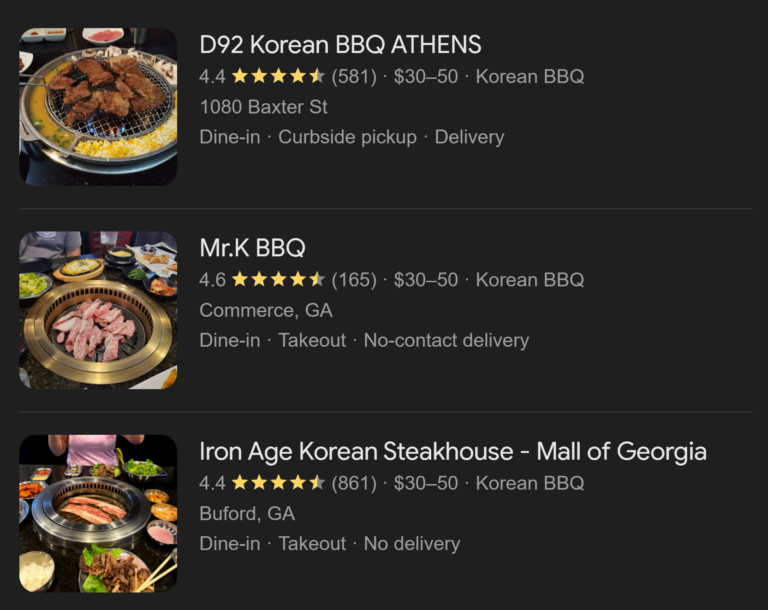Korean BBQ in Athens, GA
Happy Birthday to ME I am going to eat Korean BBQ for my 44th birthday. I love Korean BBQ. SO much. Korean BBQ is one of my favorite dining experiences because it’s intimate and you…
Food sustains us. Everyone enjoys going to a restaurant and enjoying a nice meal. It’s fast, and easy. You don’t have to clean your kitchen before and after. And the taste? I like food. Food is good. I enjoy high-quality, restaurant food.
But it can be expensive and it can also be worse for you nutritionally than cooking at home.
If you want to watch what you’re eating when you eat at a restaurant, you can consider things like:
Check the restaurant’s food safety inspection score. This is usually available on the Department of Health‘s website for your state. When you get your meal, check to ensure the food is cooked thoroughly.
Restaurant food can be higher in calories, fat, salt, and sugar than what you would make at home. These tips will help you to eat more healthily when you’re eating out at restaurants.
First and foremost, read the menu!
Look for food high in nutrition. Meals that are high in fiber, protein, and vitamins, and low in sugar, fat, and sodium are best.
Order food that is baked, broiled, grilled, roasted, or steamed. Fried or breaded meals tend to be higher in fat and calories.
Choose sauces: Primarily order meals with sauces made mostly from vegetables, like marinara. If you’re watching your caloric intake, butter or cream sauces can be very heavy.
Be mindful of drinks: Alcohol and coffee drinks can be high in calories.
Commercially prepared food, especially from big chain restaurants is usually pre-prepared and can be less nutritious.
Eat leftovers promptly. 3–4 days max. I usually can’t bring myself to eat leftovers if I don’t eat them the day after I bring them home.
If you get sick after eating out, and think it came from the food you ate, report it to the local health department. You don’t want others to suffer if a restaurant is unsafe.

Happy Birthday to ME I am going to eat Korean BBQ for my 44th birthday. I love Korean BBQ. SO much. Korean BBQ is one of my favorite dining experiences because it’s intimate and you…